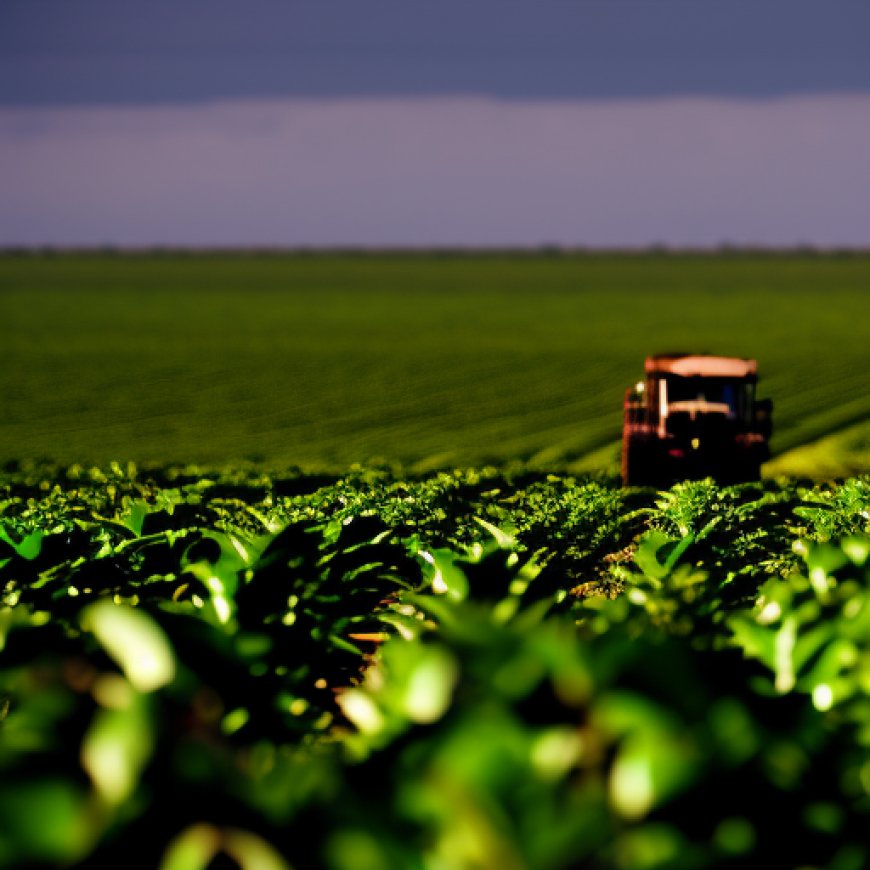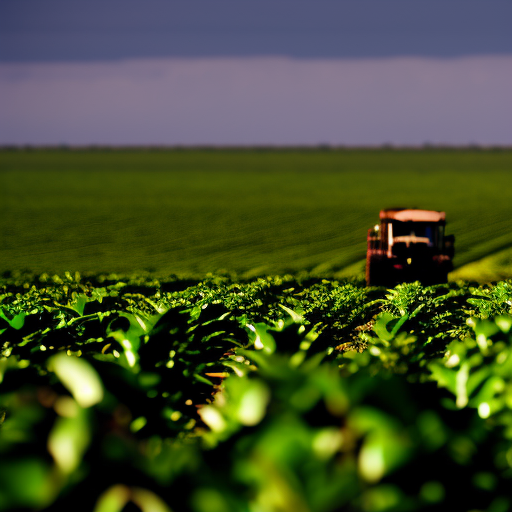Weekly links April 12: declining African agricultural productivity, revenue from .ai, returns to Bangladeshi migration, and more…
Weekly links April 12: declining African agricultural productivity, revenue from .ai, returns to Bangladeshi migration, and ... World Bank


Agriculture and Development: Highlights from the 2024 Kuznets Mini-Conference
The Yale Economic Growth Center hosted their Kuznets Mini-Conference on April 5, focusing on Agriculture and Development. Sagar Saxena highlights the key takeaways from the conference, from micro to macro, from water conservation in Bangladesh to coffee supply chains in Uganda. The conference followed Chris Udry’s deliver of the 33rd annual Kuznets Memorial Lecture, “Structural Change and Declining Agricultural Productivity: Evidence from Sub-Saharan Africa.” Udry presented results from his analysis with coauthors of a plot-level dataset that aggregates survey data for nearly 60,000 farmers over a 10-15 year period across six sub-Saharan African countries. They found that agricultural yields have actually been systematically declining across these countries. You can read about Udry’s puzzling results in an EGC Q&A article, and you can watch the entire lecture on EGC’s website.
The Economics of everyday things podcast
The Economics of everyday things podcast has an episode on Internet top-level domains. Of interest for development is the story of how a very countries with two-digit country abbreviations have struck it lucky, providing large sources of revenue for small countries – but also raising questions of governance, contracting, and revenue sustainability. For example, the island of Anguilla has domain names ending in .ai – which have suddenly become very popular, and a country of population 15,000 is now getting $4 million a month, and half of all government revenue for the year, from selling .ai domain names. They also have an update on an earlier one I had heard of, Tuvalu, which has the .tv domain names – and the difficulties of thinking about how to value what these rights are worth.
On VoxDev
On VoxDev, Bossavie and co-authors look at the returns to Bangladeshi migration, and how many of them use the money earned abroad to then set up businesses at home. “Prior to migration, the individuals in our sample have a self-employment rate of around 30%, similar to non-migrants, but it increases to over 60% after return. This is significantly higher than for people within the same age group and human capital characteristics but who have never migrated. Many of these returning migrants become small-scale entrepreneurs, such as shopkeepers or taxi drivers.”
Scott Cunningham’s Mixtape podcast series
In Scott Cunningham’s Mixtape podcast series, he recently interviewed Daniel Chen about his pathway to working on governance and the law, with detours on religious fundamentalism in Indonesia, and his recent paper on the causal effects of teaching Chicago economics to judges. It was one of the interviews that had me reflecting on the challenge of knowing what knowledge will be useful later on in life, and what shapes the questions we end up working on.
Conference deadline on Monday
The 6th World Bank/IFS/ODI Public Finance Conference will focus on public finance and structural transformation: submissions due Monday April 15.
SDGs, Targets, and Indicators
1. Which SDGs are addressed or connected to the issues highlighted in the article?
- SDG 2: Zero Hunger
- SDG 8: Decent Work and Economic Growth
- SDG 9: Industry, Innovation, and Infrastructure
- SDG 10: Reduced Inequalities
- SDG 16: Peace, Justice, and Strong Institutions
2. What specific targets under those SDGs can be identified based on the article’s content?
- SDG 2.3: By 2030, double the agricultural productivity and incomes of small-scale food producers, in particular women, indigenous peoples, family farmers, pastoralists, and fishers.
- SDG 8.3: Promote development-oriented policies that support productive activities, decent job creation, entrepreneurship, creativity, and innovation.
- SDG 9.3: Increase the access of small-scale industrial and other enterprises, in particular in developing countries, to financial services.
- SDG 10.2: By 2030, empower and promote the social, economic, and political inclusion of all, irrespective of age, sex, disability, race, ethnicity, origin, religion or economic or other status.
- SDG 16.6: Develop effective, accountable and transparent institutions at all levels.
3. Are there any indicators mentioned or implied in the article that can be used to measure progress towards the identified targets?
- Agricultural productivity and incomes of small-scale food producers
- Job creation and entrepreneurship rates
- Access to financial services for small-scale enterprises
- Social, economic, and political inclusion rates
- Effectiveness, accountability, and transparency of institutions
4. Table: SDGs, Targets, and Indicators
| SDGs | Targets | Indicators |
|---|---|---|
| SDG 2: Zero Hunger | SDG 2.3: By 2030, double the agricultural productivity and incomes of small-scale food producers, in particular women, indigenous peoples, family farmers, pastoralists, and fishers. | Agricultural productivity and incomes of small-scale food producers |
| SDG 8: Decent Work and Economic Growth | SDG 8.3: Promote development-oriented policies that support productive activities, decent job creation, entrepreneurship, creativity, and innovation. | Job creation and entrepreneurship rates |
| SDG 9: Industry, Innovation, and Infrastructure | SDG 9.3: Increase the access of small-scale industrial and other enterprises, in particular in developing countries, to financial services. | Access to financial services for small-scale enterprises |
| SDG 10: Reduced Inequalities | SDG 10.2: By 2030, empower and promote the social, economic, and political inclusion of all, irrespective of age, sex, disability, race, ethnicity, origin, religion or economic or other status. | Social, economic, and political inclusion rates |
| SDG 16: Peace, Justice, and Strong Institutions | SDG 16.6: Develop effective, accountable and transparent institutions at all levels. | Effectiveness, accountability, and transparency of institutions |
Behold! This splendid article springs forth from the wellspring of knowledge, shaped by a wondrous proprietary AI technology that delved into a vast ocean of data, illuminating the path towards the Sustainable Development Goals. Remember that all rights are reserved by SDG Investors LLC, empowering us to champion progress together.
Source: blogs.worldbank.org

Join us, as fellow seekers of change, on a transformative journey at https://sdgtalks.ai/welcome, where you can become a member and actively contribute to shaping a brighter future.







